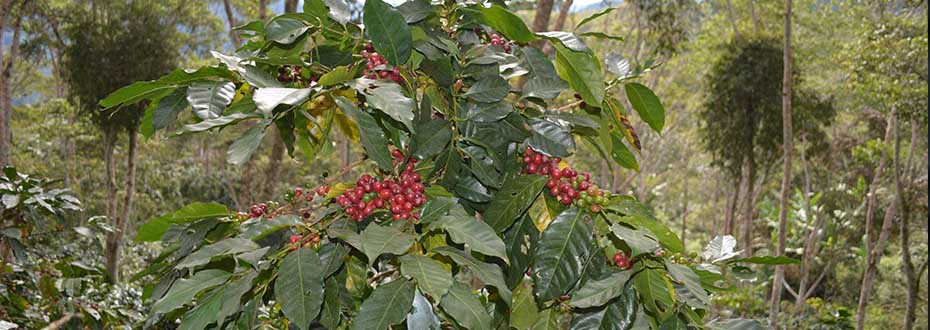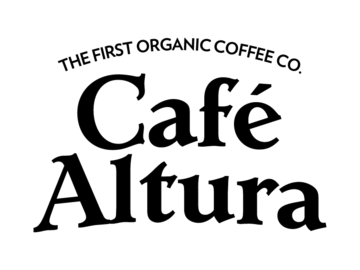
“This War Is Not Inevitable”
Here at Café Altura, we value sustainability, and our background in biodynamics is a big part of that. Pioneered by Rudolf Steiner in the early 20th century, biodynamics is a holistic form of agriculture which treats a farm as an interconnected entity. Through careful use of crop diversity, natural compost, and a variety of other methods, biodynamic agriculture strives to create a harmonious ecosystem which produces crops of the utmost quality.
When we heard that a play about Rudolf Steiner’s life and thought, entitled “This War Is Not Inevitable” was being staged in our very own hometown of Ventura, CA, we were naturally excited. We were even more excited to find out that one of two actors in said play, Christian Peterson, is a barista at one of our wholesale accounts, Ambrosia by Caffrodite. What follows is an interview with Christian in which he describes his background, the play, his thoughts on the enduring relevance of Steiner, and even a little about his coffee preferences. We hope you enjoy, and be sure to check out the play if it travels to a city near you!
Tell us a little about yourself and your background.
I was born in Germany, in the city of Hannover. Hannover is famous for the Hanoverian horse and is home to royal gardens called the Herrenhäuser Gärten and to figures like King George the 1st.
From about the age of four I grew up in the states. My parents put me in the Waldorf School in upstate New York where I eventually ended up staying Kindergarten through twelve. After high school I studied English and then went on to do an actors training at the British American Drama Academy in conjunction with the Yale School of Drama held in Oxford, England.
What is “This War Is Not Inevitable” about?
That’s a threefold question you see. “This War Is Not Inevitable” explores the important relationship between Rudolf Steiner and successful entrepreneur, Emil Molt. They want to see social consciousness change in Germany, especially for the average worker. They try to change the views in the Reichstag and at the Treaty of Versailles by introducing the Threefold Social Order. Their goal is to shorten the War. Molt worked himself up the ranks to owning the Waldorf Astoria cigarette factory which he and Steiner would later use as the building for the first Waldorf School to be opened in.
The second theme circles around the Threefold Social Order. The TSO, in theory, seeks to balance politics and state power, economics, and the social spheres. It would allows man to express their work as an individual/spiritual act rather than a cog in the machine. It goes against a Marxist idea of labor and human labor value as a commodity. The play shows these ideas being rejected by officials and members of the government who allowed the possibility of war to happen, sometimes for their own benefit.
The third aspect of the play is a reflection on those times in the First World War and on the present situation taking place now, especially in the current state of the USA. In many ways the play brings up themes that are relevant today but go unnoticed amidst the chaos. For instance, the stratification of the classes is not as obvious as it was one hundred years ago, but money and class still rules this country in a less, let’s say, obviously visible way. The capitalist model that America prides itself on misses an important aspect of socialism and in a way there is almost too much individuality in a nation that needs to find a way back together. Honestly, America is one of the loneliest places I have ever been, and I grew up here!
What is your favorite aspect of the play?
I have a strong connection to my German roots. Being able to delve deeper into understanding what life was like for my ancestry, seeing as they were factory workers themselves, is something I’m happy to represent. Not only that, but I am the “ideal” Waldorf student, and I say this simply because of the fact that my family is poor, and yet, what we lacked in means, we make up for in internal qualities. That is the whole model of Waldorf education. It was meant to allow disenfranchised children who would have ended up uneducated laborers to gain a creative and individualized education. I am happy to tell the story of unsung heroes like Emil Molt. I somehow feel I now share a connection with him, now that I’ve spent time with him, so to speak, despite the fact that I’ve never known him nor been alive during his lifetime.
How do you think the thought of Rudolf Steiner and the principles of sustainability he represents remain relevant today?
I’ve been reading his lectures on World Economics. Steiner bases a lot of his economical ideas on the foundation of nature. In many ways, nature is of course the worlds biggest commodity. Without nature man would have nothing to build on, and furthermore, give worth to. Labor and commodity arise from nature. The irony is, in today’s world we ignore nature for the sake of money. Food is lasting longer and becoming less nutritional, quantity overtakes quality, instant gratification outweighs natural process. In a lot of ways this boom for shopping “local” that seems to have come into fashion over the last ten years is a natural reaction to greed, or corporate interests or whatever you want to call it. Also, Biodynamic farming is in itself a very interesting and self sustaining way to grow, produce, sell and reuse. I think biodynamic farming is great! It’s like keeping a natural harmony that is in constant “flux and flow” (that’s a line from the play) with its counter parts. It’s similar to the way Steiner talks about money flowing like the bloodstream to keep the body healthy. If it sticks somewhere there will be sickness. It’s all pretty basic in a sense, and yet I guess people don’t have time to think about these things! That’s what philosophy is for, right?
What is your favorite type of coffee/coffee drink?
One of my favorite drinks to get is a cappuccino with almond milk. I don’t get it very often, it’s more as a specialty because it has to be made well. It’s the way that the almond milk foams that gives the cappuccino a certain nice, nutty flavor. And being a good German boy I love anything that resembles Marzipan or almond so this drink does the trick on a special occasion.
When will the play be staged?
Our play is set to go at Namba Arts in Oak Street, Ventura the 16 & 17th of November at 8PM.
Thank you, Christian.
Interview Conducted by : Bret Colman, Director of Coffee / Head Roaster, Cafe Altura Organic Coffee
